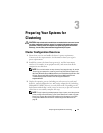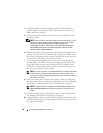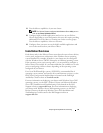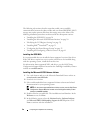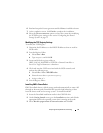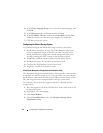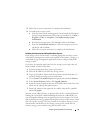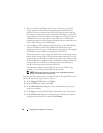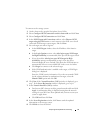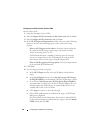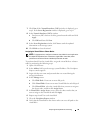
Preparing Your Systems for Clustering 35
Configuring the iSCSI Initiator
Configuring the iSCSI Initiator using iSNS
iSNS includes an iSNS server component and iSNS client component.
The iSNS server must reside within the IP storage network on a host or in the
switch firmware. An iSNS client resides on both the iSCSI storage system and
any iSCSI systems connected to the storage system. iSNS provides the
following services:
• Name registration and discovery services – Targets and initiators register
their attributes and addresses. After the targets and initiators register, they
can obtain information about other initiators or targets.
NOTE: The iSCSI Initiator (usually a host server) converts blocks of SCSI
commands and data into a format suitable for an IP network. The iSCSI
Initiator is configured with a unique iSCSI name or Internet Qualified Name
(IQN) in a PowerEdge system, allowing an administrator to identify and
manage. For iSCSI access, the iSCSI Initiator assigns the same iSCSI name to
all NICs in the PowerEdge system so they appear as one single initiator.
However, each NIC is still identified by a unique IP address. The PowerEdge
SE600Wi cluster solution supports NICs with Microsoft Software Initiator and
does not support iSCSI HBAs. An iSCSI target (usually a storage device)
receives iSCSI commands from the initiator. Each iSCSI target is identified by
a unique IQN and each port on the storage array controller is identified by an
IP address.
• State-change notification service – The iSNS server notifies relevant iSNS
clients of network events that could affect their operational states such as
storage resources going offline, domain membership change, and link
failure in a network. These notifications let iSNS clients quickly adapt to
changes in topology.



